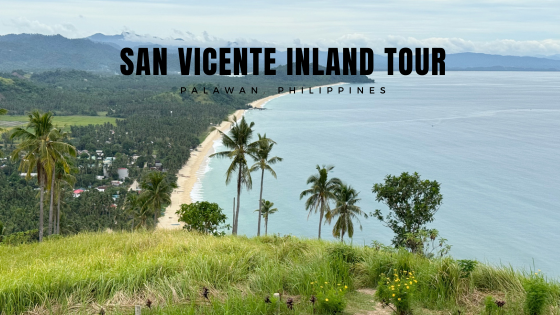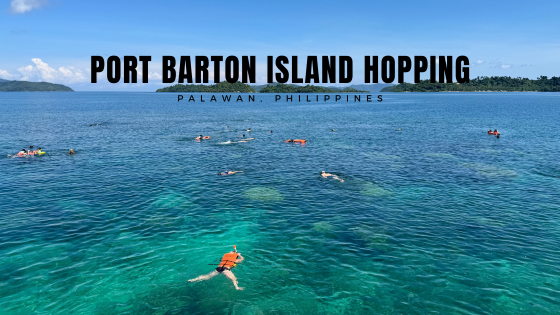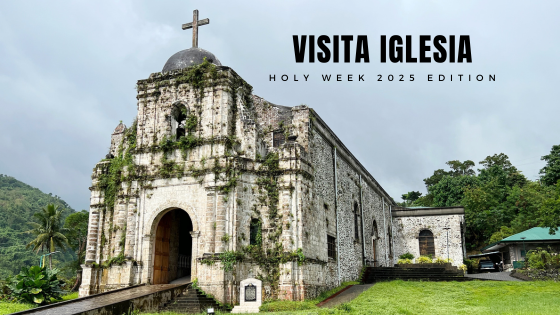Traveling to Ilocos Norte is useless if you won’t check the attractions I called “The Big 3”. Last day of my solo travel to Ilocandia was spent dropping one by one at Bangui Windmills, Kapurpurawan Rock Formation, and Cape Bojeador Lighthouse. I left Saud Beach around 7 AM in the morning catching a minibus going to Laoag. From my research, these destinations were kilometers away from the main road and since I’m on a budget, I planned to check them out just by walking.
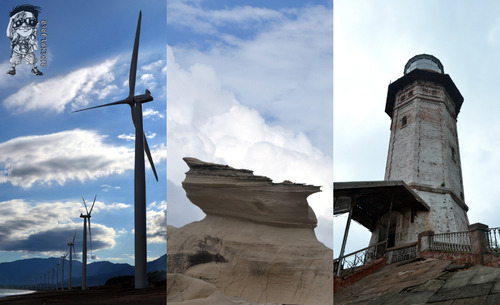
First destination: Bangui Windmills
Known as Bangui Windmills, the Bangui Bay Wind Power Project is the first commercial wind farm in South East Asia funded under the DANIDA Mixed Credit Program for Developing Countries. It is a wind power generating plant consisting of 20 units of Vestas NM82 wind turbines. It was started in 2004 having only 15 turbines which were fully operated in 2006. The management added an additional 5 turbines in 2009 making it 20 which were spread along the coastline of Bangui at a 300m distance between turbines.
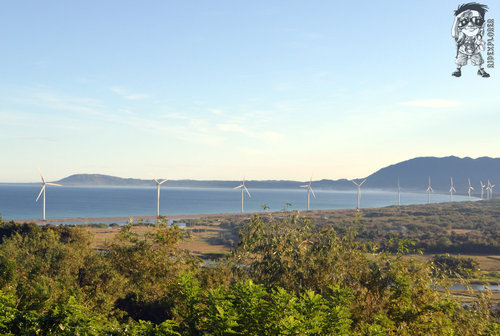
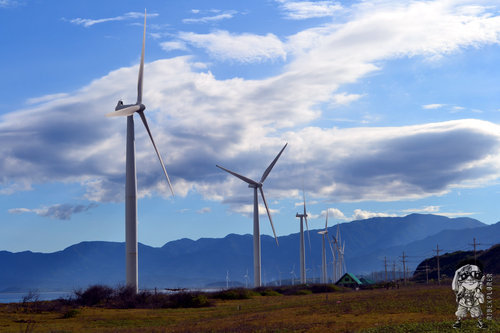
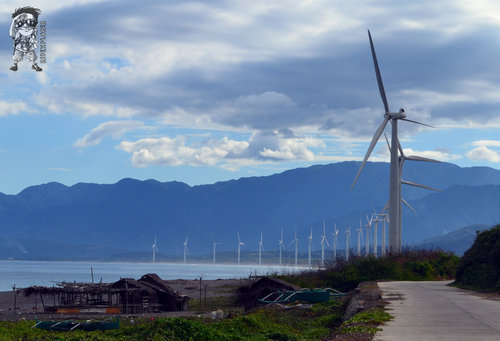
RELATED POST: Do-it-yourself Ilocos Travel Guide and Itinerary
Second Stop: Kapurpurawan Rock Formation
One of the golden acres of the town of Burgos is the massive rock formation that juts out into the sea. Seen up close, it is a dazzling bright white rock that sparkles in the sun. Kapurpurawan is a showcase of the wind and water power on rock and coral. The rock formation is 4.5 kilometers away from the main road and the only way to get there is by hiring a tricycle, else prepare to endure a long walk. To assist you are the very accommodating staff of the Tourist Center located at the entrance. But before that, I was flagging the minibus to stop and scrambling down the vehicle on my way to the tourist center.
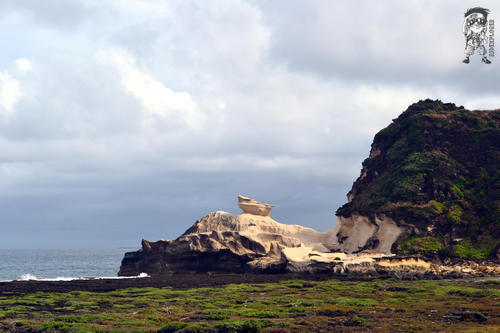
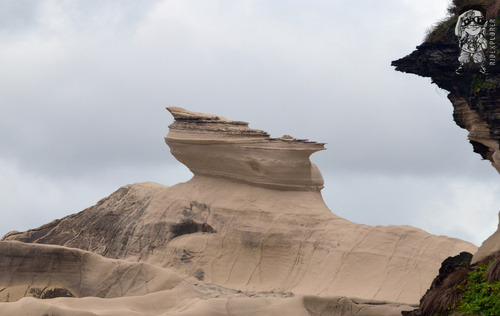
Last Stop: Cape Bojeador Lighthouse
Also known as the Burgos Lighthouse, which is on top of Vigia de Nagparitan Hill, was first lit in 1892. Designed by Magin Pers and Pers in 1887, it is a typical Spanish colonial lighthouse which is all masonry made of bricks. The 65-foot-tall (20m) octagonal stone tower still serves as a welcoming beacon and guide to international ships entering the coastline of the Philippine Archipelago.
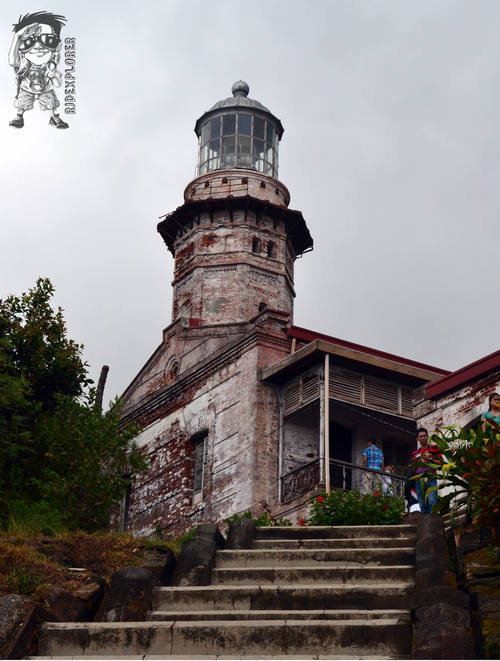
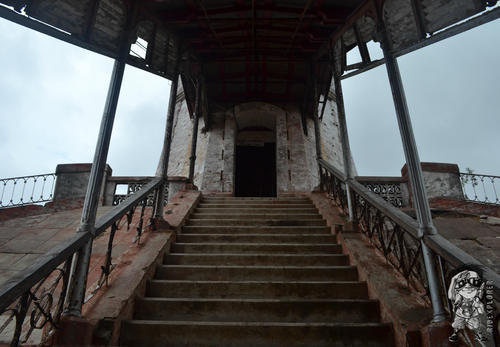
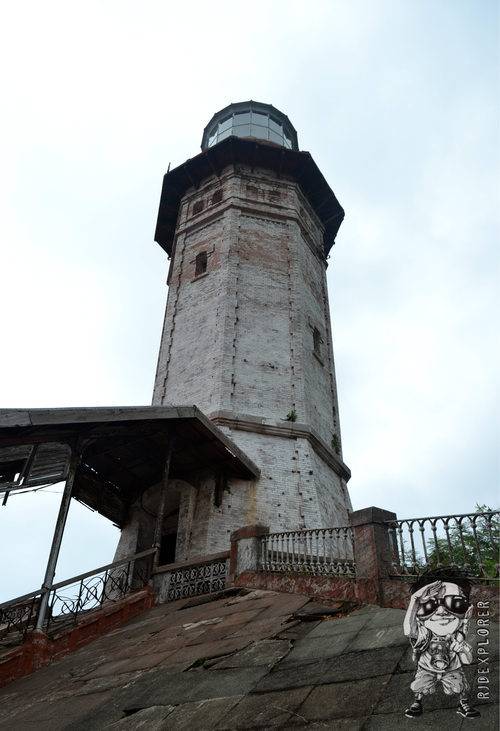
Visiting the three spots will make you appreciate technology, nature, and history. Technology, for the way of how wind energy is being converted to electrical energy done in Bangui Windmills; nature, for how well the elements worked together to craft the superb formation of Kapurpurawan; and history in Cape Bojeador Lighthouse, for how it recorded the past and preserving it for the present generation to see.
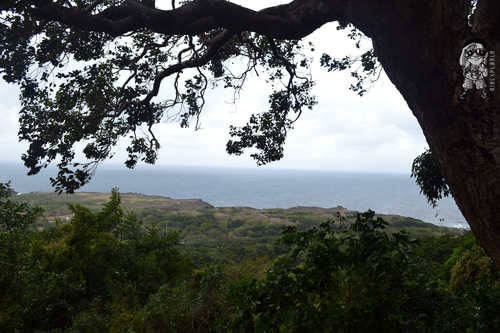
TRAVEL TIP: The three attractions said above can be toured with a tricycle at a rate of PHP 600 (max 3pax). At present as per Kuya Nori, Pagudpud tricycles were not allowed to do the South Pagudpud Tour to give way to the tricycle drivers of Bangui and Burgos. So from Pagudpud, take a bus ride and say to the bus conductor to drop you off on the way to the Bangui Windmills, fare is PHP 25. From Bangui you can hire a tricycle to tour you around the 3 spots.




